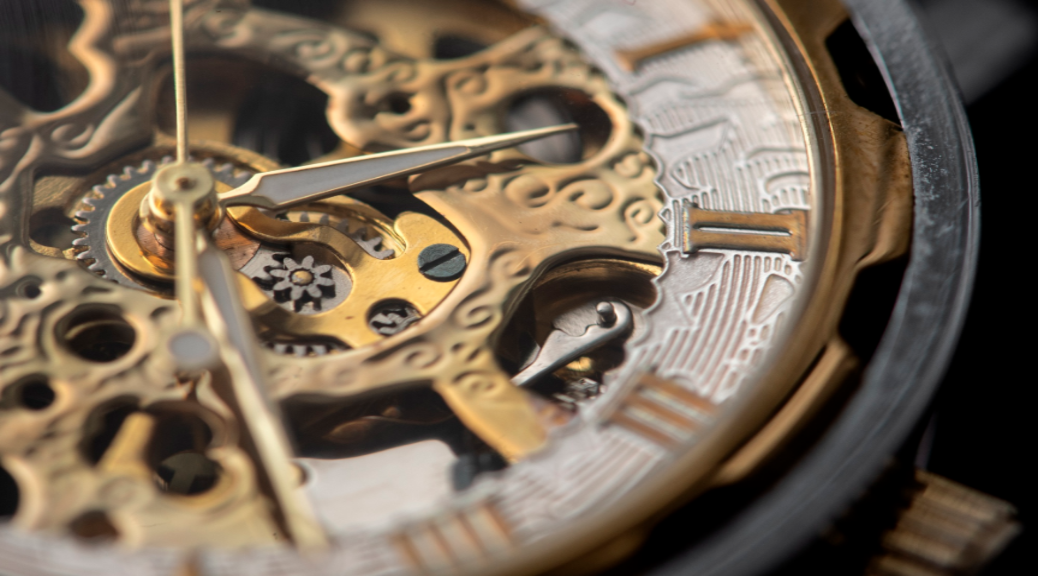Mechanical and quartz watches are two different types of timepieces, with varying mechanisms that determine their accuracy, durability, and maintenance needs. Here are the main differences between the two:
Mechanism: Mechanical watches use a complex system of gears and springs to keep time, whereas quartz watches rely on a battery-powered quartz crystal oscillator.
Accuracy: Quartz watches are generally more accurate than mechanical watches, as they rely on a consistent electronic signal. Mechanical watches, on the other hand, can lose or gain a few seconds per day, depending on their quality and maintenance.
Maintenance: Mechanical watches require regular servicing, usually every 3-5 years, to ensure they are working correctly. This is because the intricate mechanism of gears and springs can become damaged or dirty over time. Quartz watches, on the other hand, require little to no maintenance other than a battery change every few years.
Durability: Mechanical watches are often considered more durable than quartz watches, as they do not rely on electronic components that can be easily damaged by shock or moisture. However, they are also more delicate and susceptible to damage if not handled properly.
Aesthetics: Mechanical watches are often appreciated for their intricate design, and the craftsmanship involved in their production. Quartz watches, on the other hand, are often more minimalist in design and can have a sleek, modern look.
There are many well-known brands that manufacture both mechanical and quartz watches. When it comes to mechanical watches, popular brands include Rolex, Omega, Patek Philippe, Audemars Piguet, Breitling, Jaeger-LeCoultre, IWC Schaffhausen, Cartier, Vacheron Constantin, and Panerai. These brands are known for their high-quality craftsmanship, intricate designs, and durable construction. On the other hand, quartz watches are offered by many brands, including Casio, Citizen, Seiko, Bulova, Timex, Movado, Tissot, Fossil, Skagen, and Swatch. These brands are known for their accurate timekeeping, low maintenance requirements, and modern, minimalist designs. It’s worth noting that some brands, such as Rolex and Omega, offer both mechanical and quartz watches, providing consumers with the option to choose the type of watch that best suits their needs and preferences.
When it comes to choosing between a mechanical or quartz watch, the answer ultimately depends on personal preferences and priorities.
If you prioritize accuracy and low maintenance, then a quartz watch may be the best choice for you. These watches are powered by a battery and rely on a consistent electronic signal, resulting in high accuracy and minimal maintenance requirements. Quartz watches are also often more affordable than mechanical watches, making them an attractive option for those on a budget.
However, if you appreciate the craftsmanship and design of traditional timepieces, then a mechanical watch may be the best choice for you. Mechanical watches use a complex system of gears and springs to keep time, resulting in a unique and often more accurate reading of time. They also require regular servicing, but many mechanical watch enthusiasts view this as a way to maintain the watch’s longevity and appreciate the ritual involved in the upkeep of these timepieces.
Ultimately, the choice between a mechanical or quartz watch is a personal one. Factors to consider when making this decision include accuracy, maintenance, aesthetics, durability, and budget. Whichever type of watch you choose, investing in a quality timepiece can be a worthwhile and rewarding decision, providing both practical and aesthetic benefits for years to come.
Apart from mechanical and quartz watches, there are several other types of watches available in the market. Here are a few examples:
Solar-powered watches: These watches are powered by solar cells that convert light into electrical energy, eliminating the need for a battery replacement.
Kinetic watches: These watches use the movement of the wearer’s arm to power a rotor, which charges a battery that powers the watch.
Smartwatches: These watches are designed to be synced with a smartphone, allowing users to receive notifications, track fitness metrics, and control music playback, among other features.
Hybrid watches: These watches combine the look of a traditional mechanical watch with the features of a smartwatch, such as activity tracking and notification alerts.
Dive watches: These watches are specifically designed for underwater use and are water-resistant to a certain depth.
Pilot watches: These watches are designed for pilots and feature large, easy-to-read dials and other aviation-specific features.
Chronograph watches: These watches feature a stopwatch function and often have additional sub-dials that display elapsed time.
Overall, the watch market is vast and diverse, offering a range of styles and features to suit any preference and budget.
Understanding the service aspects of both mechanical and quartz watches is crucial, despite the clear differences between the two types.
Servicing of Mechanical Watches:
Mechanical watches are complex machines that require regular maintenance to keep them running accurately and smoothly. The general guideline for servicing mechanical watches is every 3 to 4 years or occasionally 5-6 years, although some manufacturers may recommend a more frequent schedule. The purpose of servicing is to clean, lubricate and adjust the movement to ensure that it operates correctly. Servicing a mechanical watch involves disassembling the watch, cleaning the movement, inspecting and replacing worn parts, reassembling the watch, and testing its accuracy. A trained and experienced watchmaker should perform the servicing.The watchmaker will then inspect and replace any worn or damaged parts, lubricate the movement, reassemble it, and adjust the timing to ensure that the watch keeps accurate time. The case and bracelet of the watch may also be cleaned and polished during the service. A final water resistance test will also entail all quality watch repair service.
Servicing of Quartz Watches:
Quartz watches are less complex than mechanical watches and require less frequent servicing. The general guideline for servicing quartz watches is every 2 to 3 years, although some manufacturers may recommend a more frequent schedule. Servicing a quartz watch involves inspecting and cleaning the circuit board, the battery, gasket, crown and stem. A trained and experienced watchmaker should perform the servicing. During the service, the watchmaker will remove the case back and inspect the circuit board for any signs of wear, damage, or corrosion. They will then clean the movement and replace the battery. The watchmaker will also inspect the crown and stem of the watch and make any necessary adjustments to ensure that it keeps accurate time. The case and bracelet of the watch may also be cleaned and polished during the service. And not to mention, a final water resistance test to top it all.
In conclusion, regular servicing of mechanical and quartz watches is essential to ensure that they operate accurately and smoothly. Mechanical watches are more complex than quartz watches and require more frequent and in-depth servicing. Quartz watches require less frequent servicing but still require regular maintenance to ensure that they operate correctly. A trained and experienced watchmaker should always perform the servicing to ensure that the watch is correctly maintained and that any issues are identified and resolved promptly.






